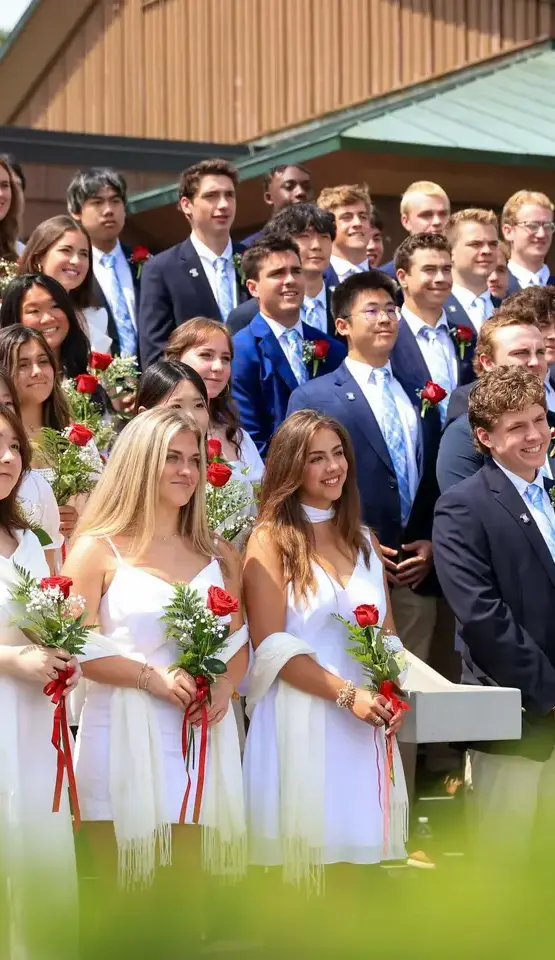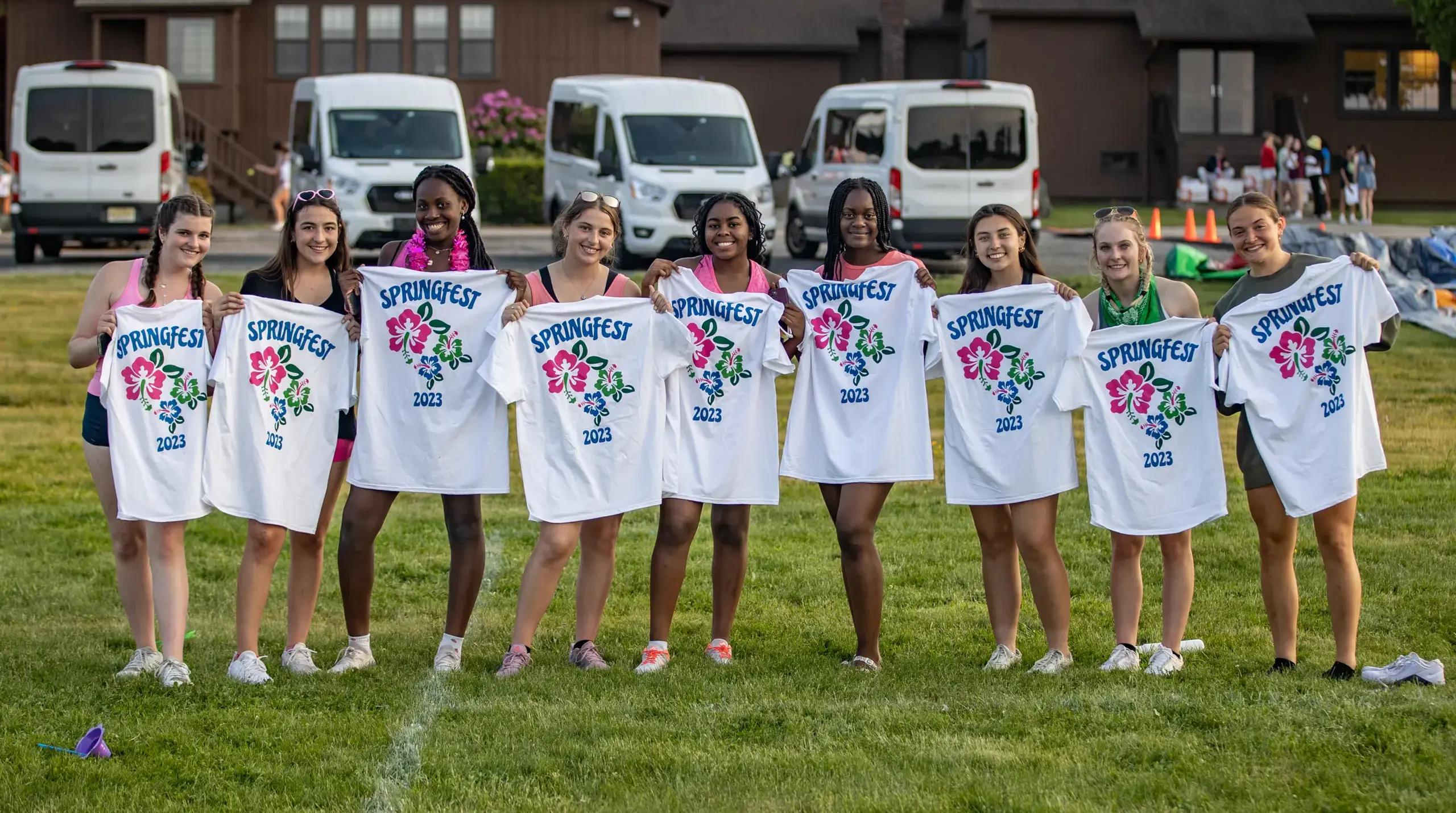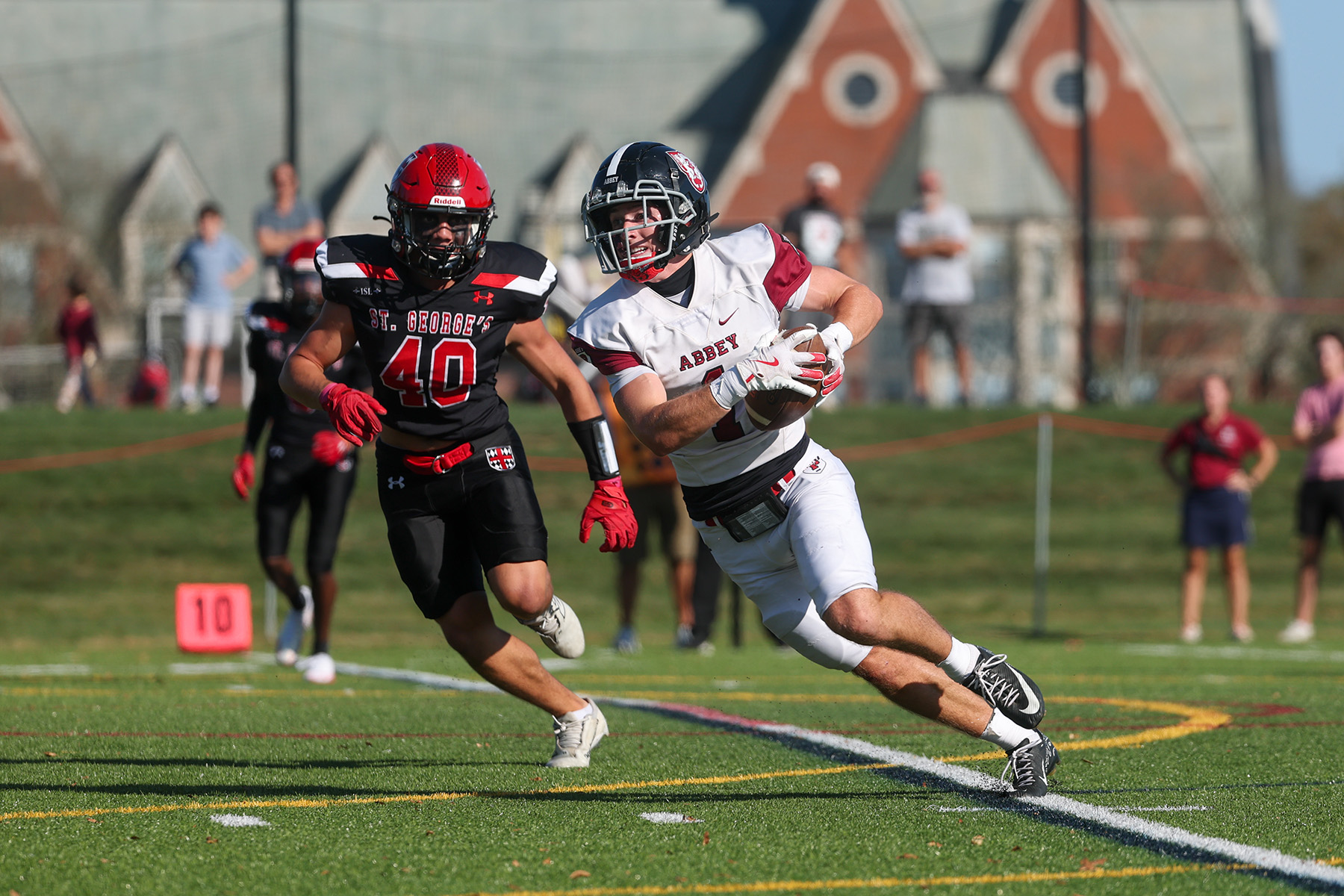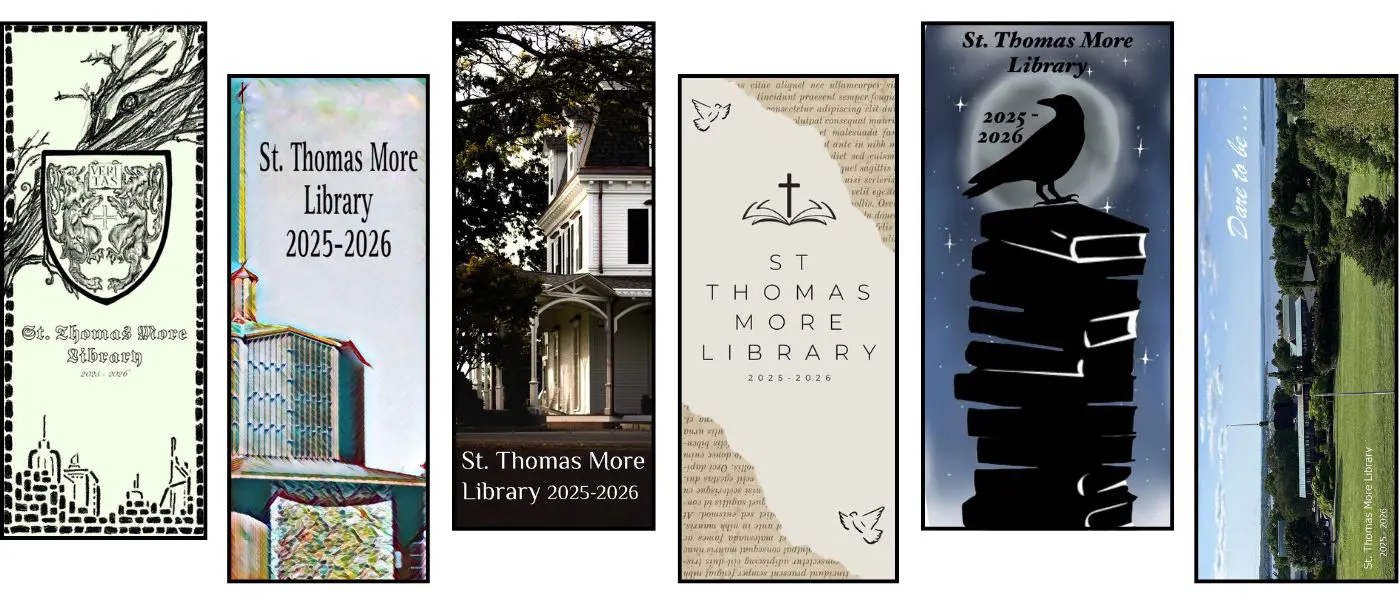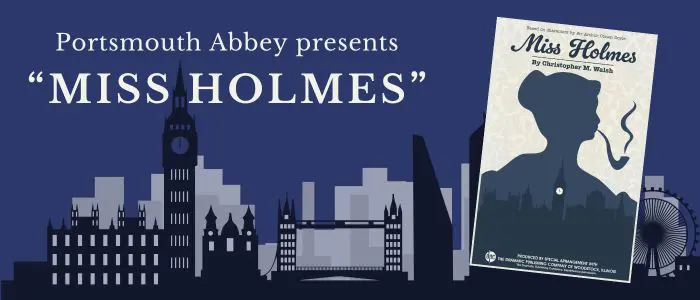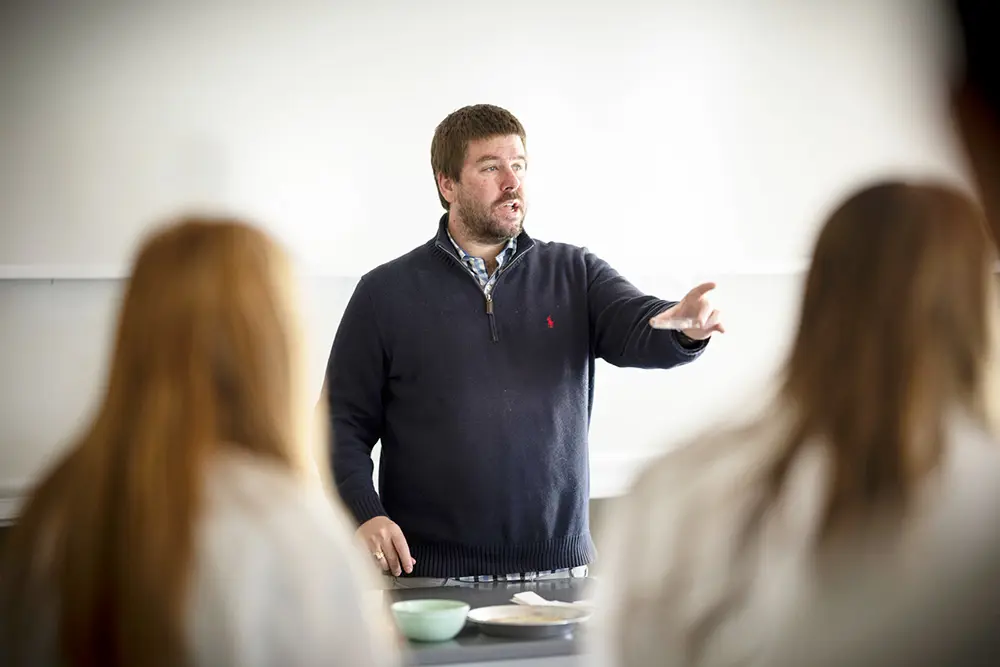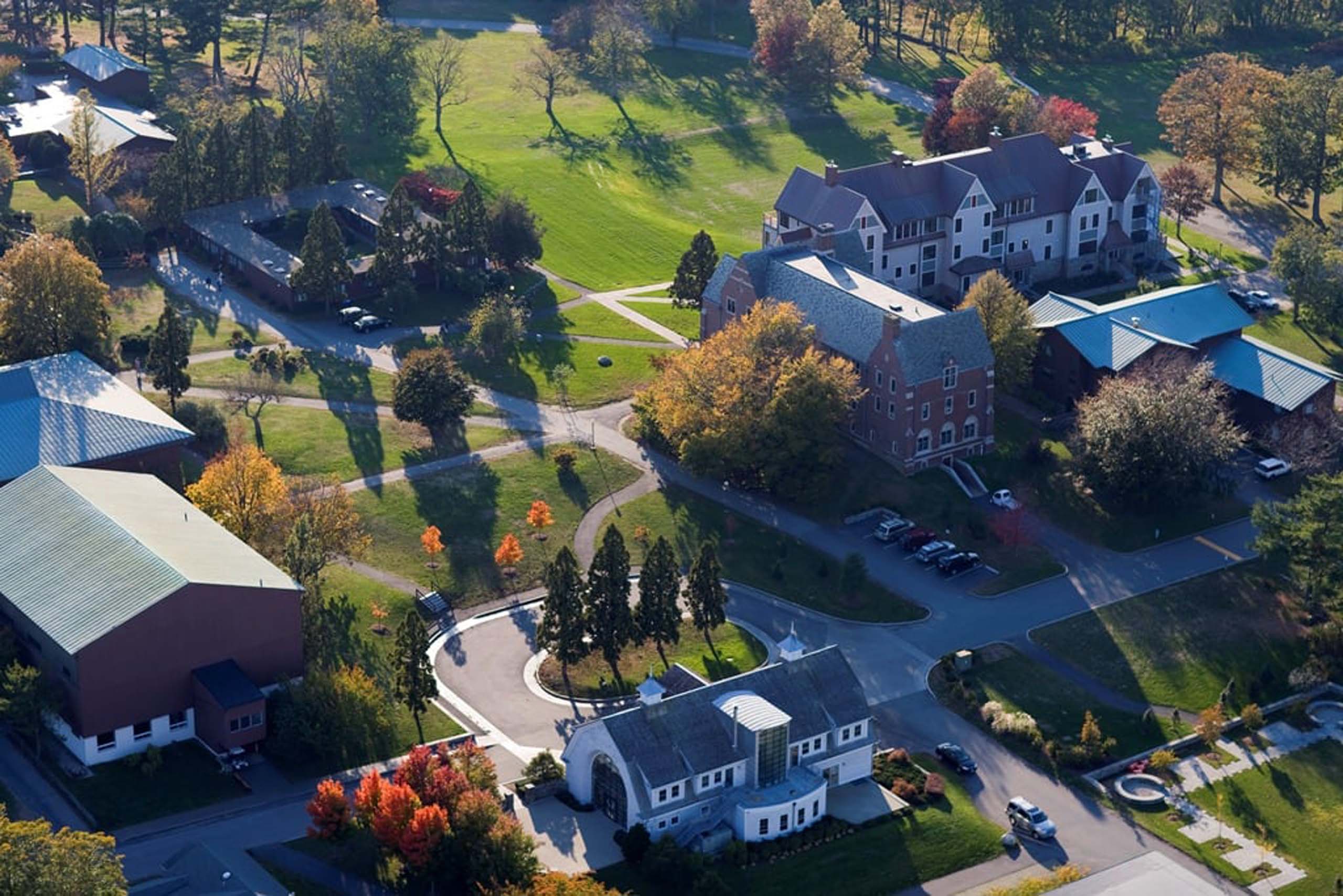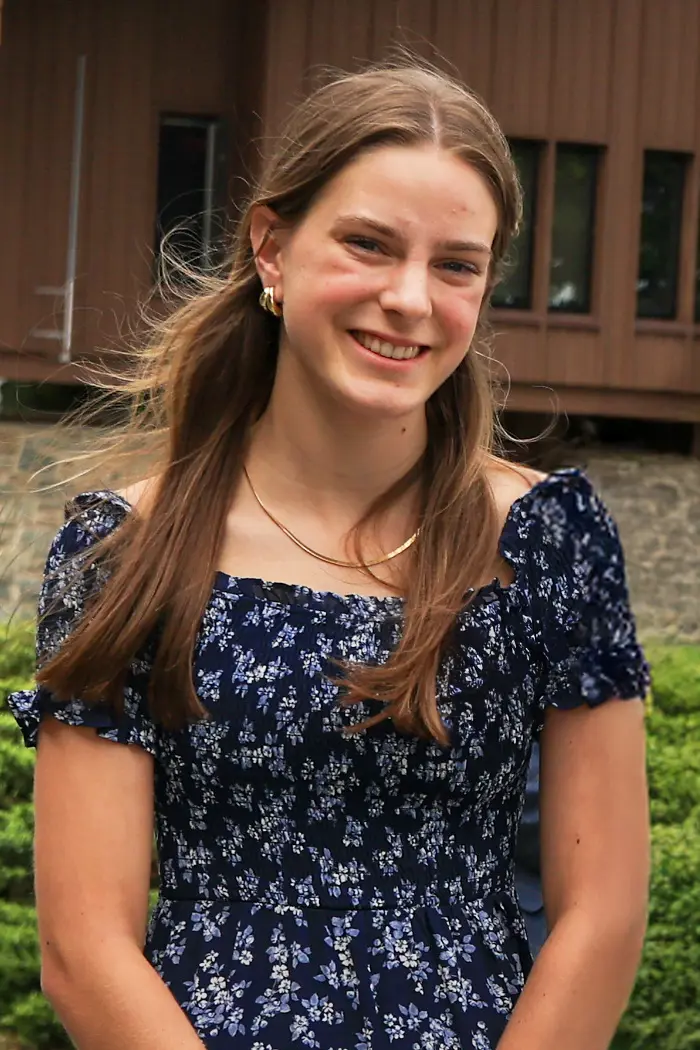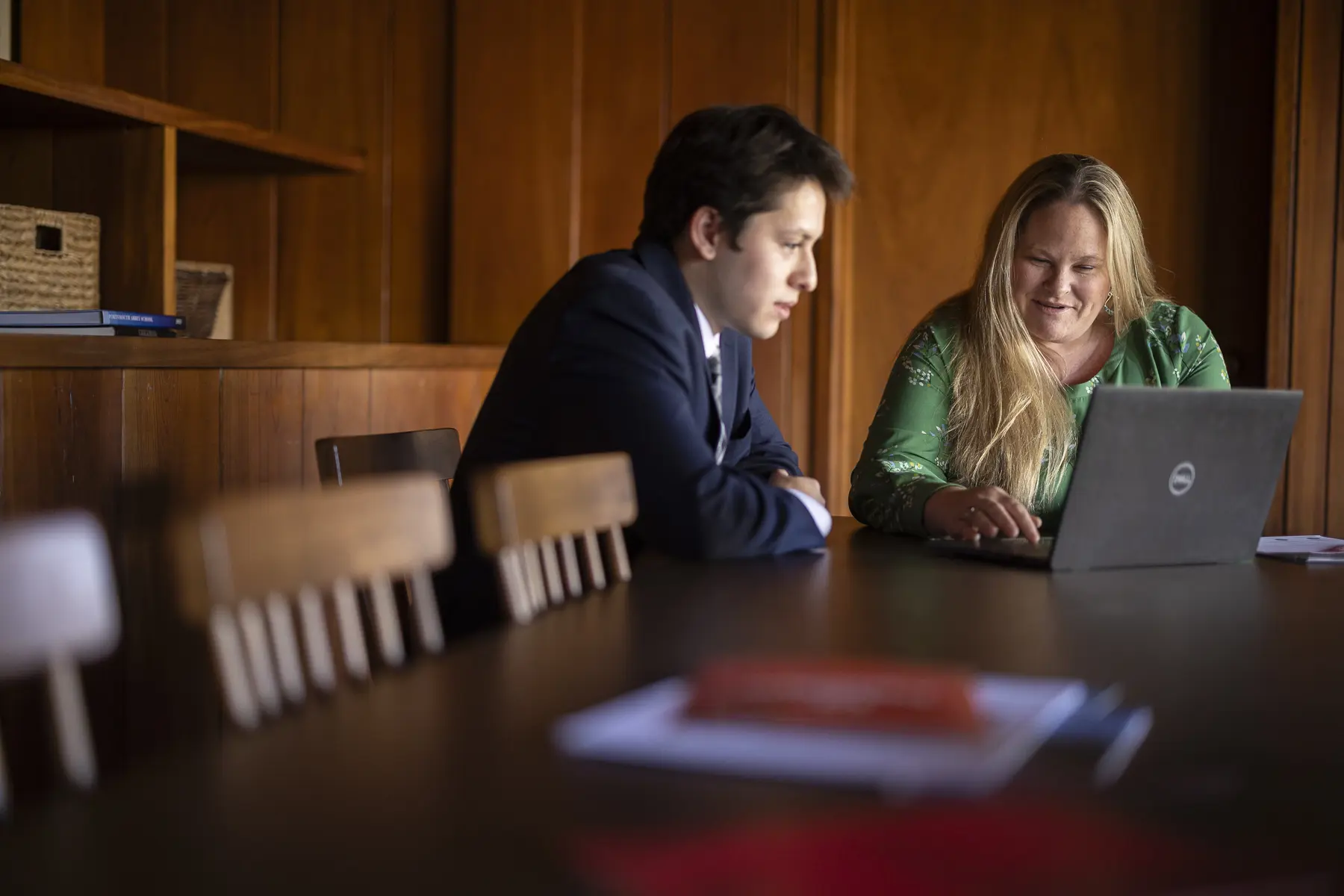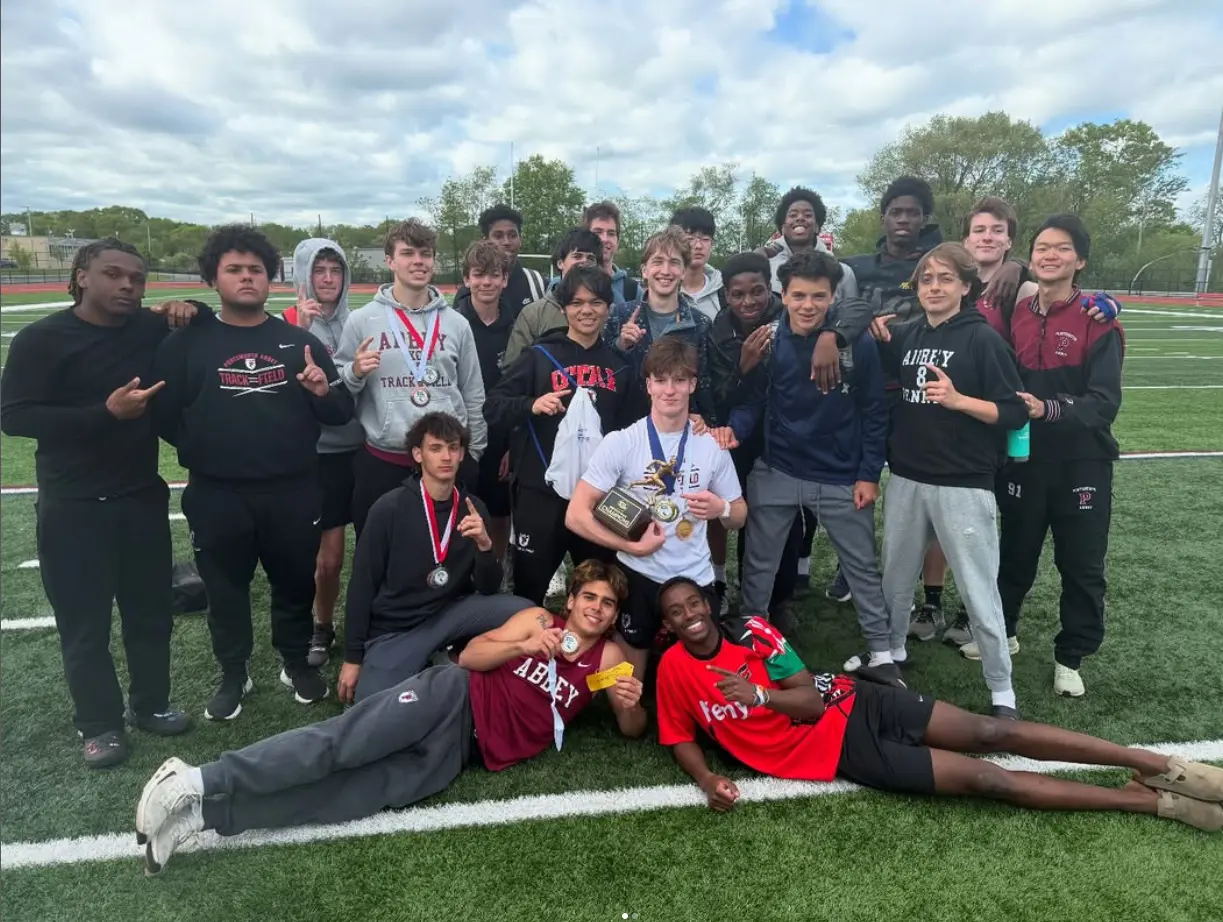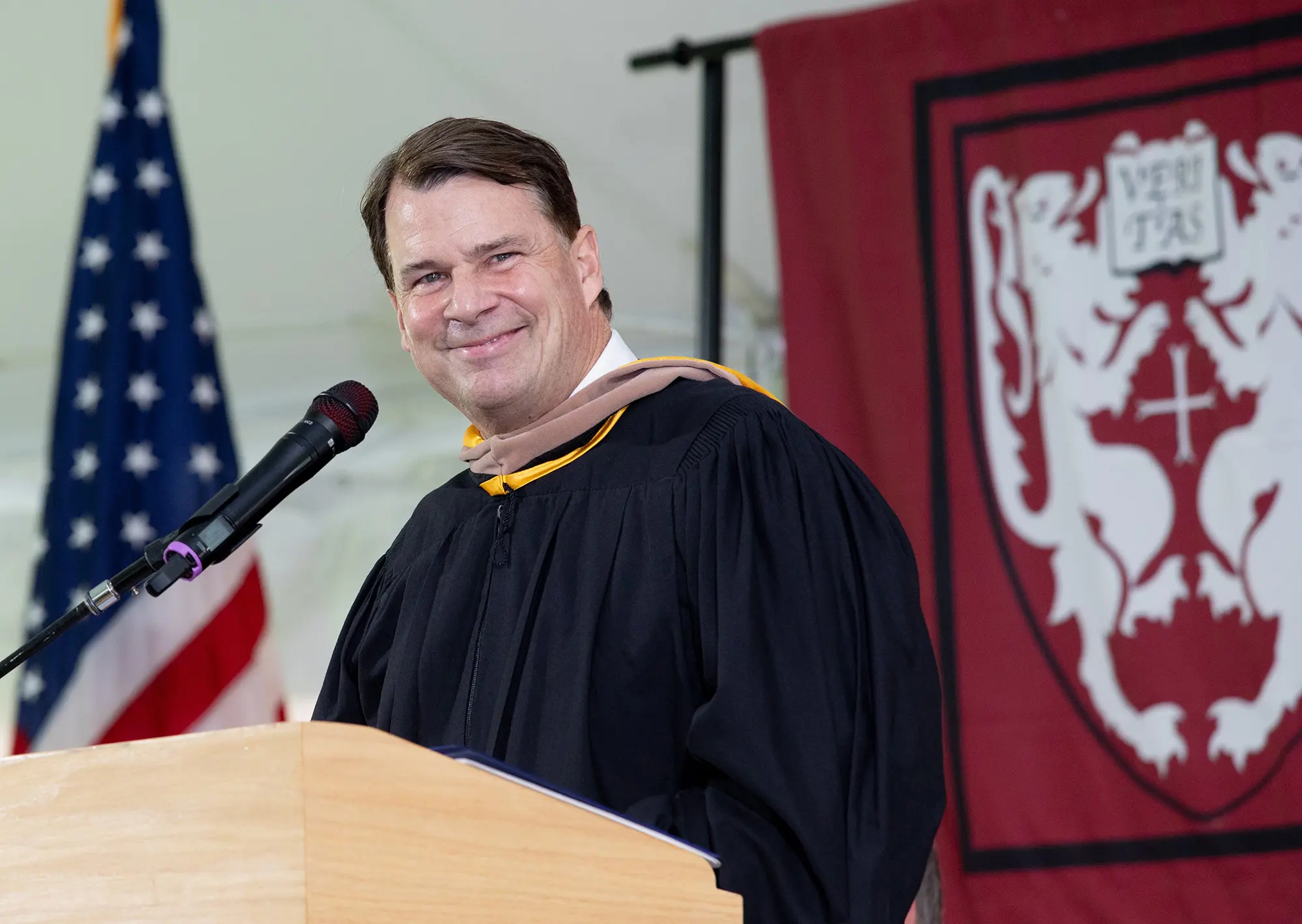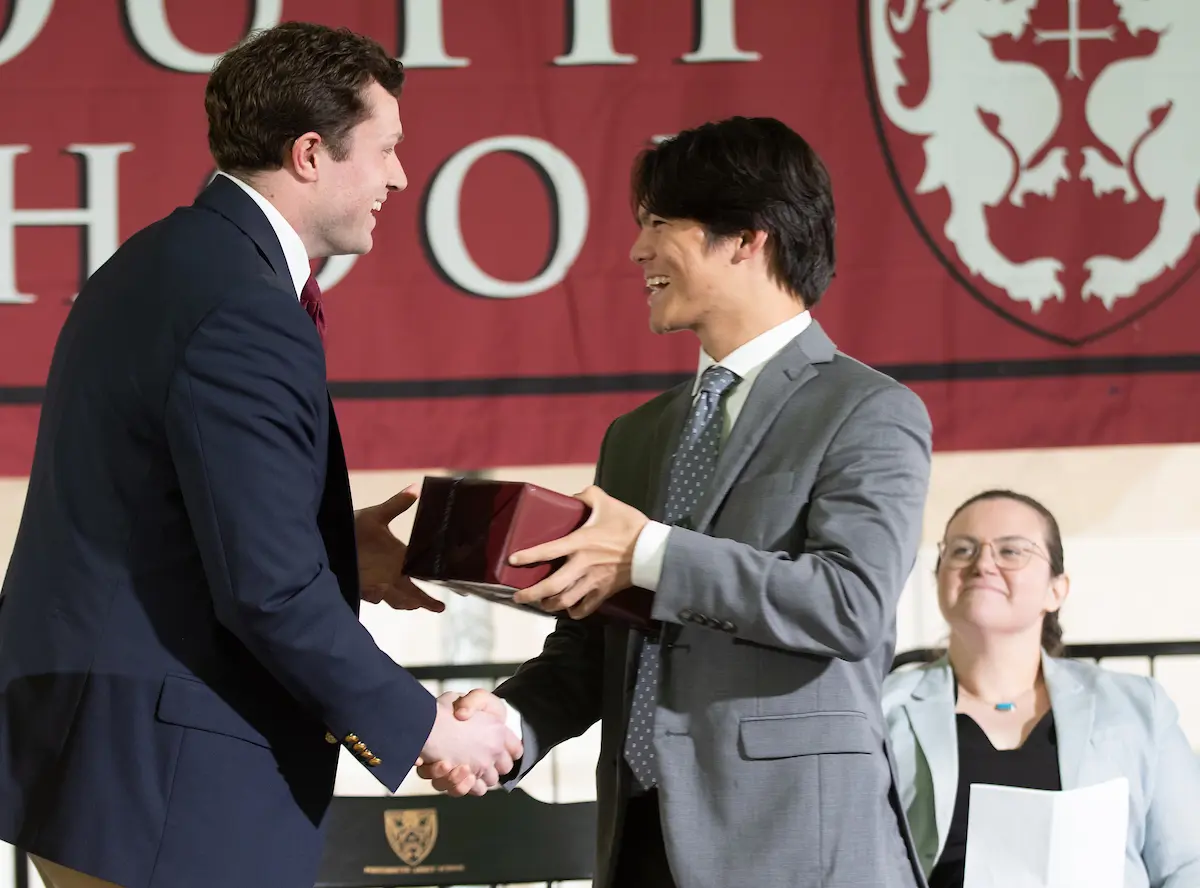NEWS AND EVENTS AT PORTSMOUTH ABBEY SCHOOL
News
-
Wed, 19 Nov 2025
Ravens Roundup November 2025
-
Wed, 19 Nov 2025
Girls Hockey Team Hosts Newport Whalers
-
Wed, 19 Nov 2025
Honoring Service and Sacrifice
-
Wed, 19 Nov 2025
Shells, Salsa and Celebration
-
Thu, 23 Oct 2025
Ravens Roundup: October 2025
-
Thu, 23 Oct 2025
Student Art Exhibition
-
Thu, 23 Oct 2025
New Student Clubs
-
Thu, 23 Oct 2025
St. Thomas More Library Bookmark Contest Winners
-
Thu, 23 Oct 2025
Miss Holmes to Hit Portsmouth Abbey Stage
-
Thu, 23 Oct 2025
Alumna Named U.S. Presidential Scholar
-
Thu, 23 Oct 2025
Science Department Grants Available to Students
-
Thu, 18 Sep 2025
Football Team Defeats St. George’s in Overtime Thriller
-
Thu, 18 Sep 2025
Girls Varsity Soccer Defeats Defending Champions Pomfret School 1-0
-
Thu, 18 Sep 2025
Welcoming New Faculty
-
Fri, 20 Jun 2025
Head Boy Head Girl for 2025-26
-
Fri, 20 Jun 2025
Matriculation 2025
-
Fri, 20 Jun 2025
Ravens Roundup: Spring Awards 2025
-
Fri, 20 Jun 2025
Commencement 2025
-
Wed, 28 May 2025
Ravens Roundup May 2025
-
Wed, 28 May 2025
ISEF 2025

